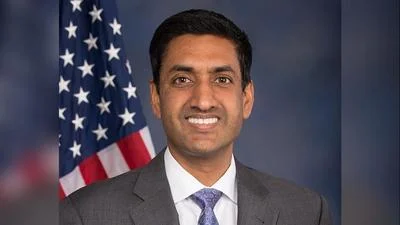John Taylor, Professor of Economics at Stanford University and developer of the "Taylor Rule" for setting interest rates | Stanford University
John Taylor, Professor of Economics at Stanford University and developer of the "Taylor Rule" for setting interest rates | Stanford University
Now in its third decade, the annual St. Lawrence Chamber Music Seminar at Stanford is in full swing, leading to a series of free public concerts by guest faculty and participants. For many, the summer seminar is an annual pilgrimage dating back to its inception in 2000, a testament to its enduring appeal. For others, this is a first-time experience joining a cohort of celebrated professional musicians and accomplished amateurs.
Friday, June 28, noon, Bing Concert Hall – This midday master performance by seminar faculty includes music by Darius Milhaud, Sergei Rachmaninoff, and Felix Mendelssohn.
Saturday, June 29, 2 p.m., Campbell Recital Hall – The annual Azure Family Concert, a one-hour special event designed for children and young adults on the autism spectrum, hosted by returning seminar faculty member and Stanford Department of Music visiting artist Stephen Prutsman, features seminar ensembles and guest performers. Registration is required.
Saturday, June 29, 5 p.m., Bing Concert Hall – The International Showcase concert is a full-length program featuring three seminar ensembles.
Sunday, June 30, 11 a.m., Campbell Recital Hall – The seminar’s grand finale is a marathon concert estimated to last four hours celebrating the dedication of all faculty and participants.
A legacy of the acclaimed St. Lawrence String Quartet—Stanford’s ensemble-in-residence from 1998 to 2024—the 10-day seminar brings together amateurs, professionals, and students aged 18 to 78. Advanced students destined for careers in performance rub shoulders with musicians whose careers are in various non-musical fields. Devoted amateurs meet professional practitioners. And everyone ends up on stage together on the final day.
“It's hard to put into words the feeling of being a part of this community,” says James L. Zehnder, professor of pathology and medicine and amateur cellist who has attended 21 seminars. “As an example,” he adds, “the St. Lawrence String Quartet played at my wedding 20 years ago; two years ago my daughter and I played together in the seminar.”
The seminar follows a rigorous schedule led by the St. Lawrence String Quartet along with guest faculty who perform free public concerts, deliver keynote lectures, conduct interactive demonstrations, and host informal late-night chamber music parties where participants mix over great music.
Instruction is provided by two former members of the St. Lawrence String Quartet—Lesley Robertson (viola) and Owen Dalby (violin)—along with new and returning guest faculty performers from around the globe.
Participants come to Stanford not only to study but also to perform live. Young professional track participants have opportunities to perform for community partners such as Palo Alto VA Medical Center before weekend public performances on campus.
Jessica Seeliger, associate professor in pharmacological sciences at Stony Brook University and an amateur violinist and violist who has participated since 2003 says: “The seminar participants and faculty are an unparalleled community who share a love of making chamber music.”
###




 Alerts Sign-up
Alerts Sign-up